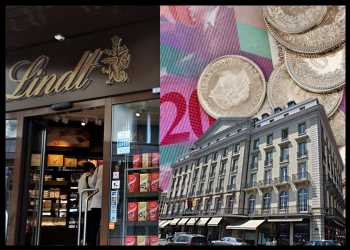
Swiss Inflation At 6-Month High
Switzerland’s consumer price inflation unexpectedly rose to a six-month high in February driven by food and energy prices and raised the scope for the fourth consecutive rate hike this month.
The consumer price index, or CPI, grew 3.4 percent on a yearly basis that was slightly faster than the 3.3 percent increase seen in January, the Federal Statistical Office reported Monday.
The inflation rate rose to the highest since August 2022. Economists had expected inflation to ease to 3.1 percent.
The acceleration in overall annual inflation was largely driven by the 6.5 percent increase in food and non-alcoholic beverages prices. Housing and energy prices moved up 4.7 percent and transport costs grew 3.9 percent.
Consumer prices gained 0.7 percent on a monthly basis after a 0.6 percent rise in the prior month. Economists had forecast prices to climb at a slower pace of 0.4 percent.
The 0.7 percent monthly increase was due to several factors including rising prices for air transport, package holidays and supplementary accommodation.
Core consumer prices gained 0.8 percent monthly in February and increased 2.4 percent from the same period last year.
Capital Economics economist Adrian Prettejohn said the consumer price data suggests there is a long way to go before inflation returns to target, especially as underlying prices pressures show no signs of slowing.
The economist expects the Swiss National Bank to raise its policy rate by 50 basis points to 1.5 percent at the March meeting.
The central bank had raised its policy rate for the third straight meeting in December in order to counter rising inflationary pressures and spread of inflation.
The SNB had lifted its policy rate by 0.5 percentage points to 1.0 percent in the December meeting.
The central bank has forecast consumer prices to climb 2.4 percent this year and 1.8 percent in 2024.
Source: Read Full Article